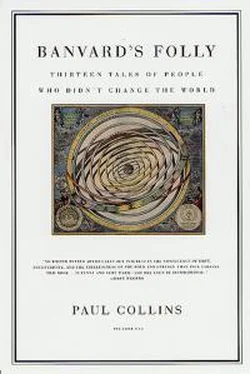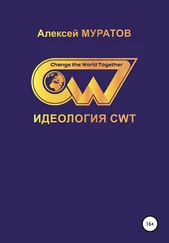Or it may have been the ink-flinging of an opinionated crank--something that constructed languages are cursed with a plentiful supply of.
And yet not all of Paris's criticisms proved unjustified: "You want to force musical sounds to serve as signs represented already by codes known by anyone who can read ... and which you want to replace with less convenient signs which only four in a thousand could interpret," he sniped. "A stupid idea. All that you're doing with your written notes, which are not music to nonmusicians
... [is creating] a time-consuming and unlearnable system."
In this, at least, Paris was absolutely correct. The limited vocabulary and confusing sameness of Solresol words were to haunt its proponents later.
Aside from Aimè Paris, though, during the 1840's and 1850's Sudre piled up accolades with one tour after another; his wife had joined him as his onstage partner, and he continued to work on his dictionaries. There was only one thing keeping Sudre from being a smashing success: a total lack of funding.
Why? In the face of so much praise, it is hard to understand why Sudre didn't get rewarded for his efforts. But in retrospect, the explanation is a heartbreakingly simple one: there's no money in universal languages. There is no freight to be carried by them, no mills to be run processing them, no wars to be won by them, no diseases to be cured. Solresol is, at heart, the philanthropic effort of an idealist--and the Brotherhood of Mankind does not issue quarterly dividend checks.
Sudre's many allies were understandably appalled by this, and in June 1850 the novelist Victor Hugo, then at the height of his fame and influence, issued this open letter from his home in Paris:
On behalf of M. Sudre, the celebrated inventor of the Musical Language and the T@el@ephonie, who has been little compensated for his work until now, I call upon the sympathy of men who, in all countries, are interested in the progress of human intelligence and of the pacific conquest of civilization.
Shamed by such outcries, in 1855 a jury went out of its way at the Paris Exposition to create for Sudre a special prize of ten thousand francs; they were certainly aware that even this generous sum hardly began to repay Sudre for his thirty-five years of labor.
By the time Sudre dragged himself to the 1862 London Exhibition, his suitcase packed with eight completed Solresol dictionaries for display, he was already an old and increasingly frail man. A jury at this exposition was moved to award him a Medal of Honor, and each word of its citation might as well have been a blow of the chisel into his tombstone: "The remarkable project of Mr.
Sudre ... will it ever receive a useful application? And its author, already quite old, will he receive no other recompense other than the unanimous admiration of an unprofitable jury?"
Months later, he was dead.
A monument was duly erected to Sudre in his home village. But as for the eight dictionaries, his life's work, that Sudre showed to such great acclaim at the London Exposition just before his death ... no one has seen them ever since. Sudre's lifetime of work, it seems, was utterly lost to history.
Except that one dictionary did survive. His widow, Josephine Sudre, took up the Solresol cause after his death, and in 1866 published a French-language Solresol grammar and dictionary titled Langue Universelle Musicale. Although it is Jean Fran@cois Sudre's magnum opus, his widow continued the language's development after her husband's death; the copy possessed by the Library of Congress has a number of inked-in corrections made by hand in what appears to be her writing. The book is an odd size, much like a modern checkbook--shaped, that is, to be slipped into the pocket of a traveling coat. The Sudres foresaw the day when travelers around the world might pull out their Solresol guides to melodiously converse with one another.
Sudre's widow also lived to see the rise of the great medium of the future--the telegraph. In 1865 a major new telegraph exchange was being planned for Paris, and the government needed a standard means of communication. Her husband had seen the first glimmerings of this medium years before, and had gamely suggested a variation of his T@el@ephonie as a method of telegraphic code. Now his elderly widow, stringing telegraph wires around their Paris apartment and experimenting for five days solid, quickly developed a telegraphic version of Solresol in time to present it to the Minister of the Interior. The demonstration was a great success ... but her scheme was not adopted.
Madame Sudre's frustration is clear in her piteous preface to the Solresol dictionary: "I have come to tell men of intelligence .... Assist me all you can, use your influence, so that music, which is universal, can become the bond of language tying together all nations!"
Her cries did not go unheard. The Soci@etè pour la Propagation de la Langue Universelle Solresol was founded in Paris, although the absence of material on Solresol in libraries today is not much of a testament to the society's effectiveness. Nonetheless, the use of Solresol grew steadily in the decades after Sudre's death, with thousands of speakers in France becoming familiar with its use.
Solresol reached a high-water mark in 1902, when society head Boleslas Gajewski published a brief Grammaire du Solresol, which represented a refinement and expansion of the grammar rules set down in Sudre's 1866 guide.
Although Gajewski starts his guide with platitudes about how useful Solresol would be for international travelers, he makes a point of printing one key paragraph in bold type:
Thus by means of Solresol, the blind will be able to exchange ideas with foreign deaf-mutes and vice versa, so everyone will be able to answer them and be understood by them.
There are in Europe more than 250,000 blind people and more than 210,000
deaf-mutes; there are thus 460,000 individuals, in Europe alone, who possess scarcely any means of communicating with everyone else, and who, thanks to Sudre's SOLRESOL, will be brought back to everyday life and see the
inconveniences for their disability reduced.
Gajewski probably knew that the game was nearly up for persuading a mass worldwide audience to adopt Solresol; those with disabilities presented a captive audience that was more attainable and easily focused upon.
Gajewski and his society were at least able to make enough of an impact that when universal language advocates Louis Couturat and Leopold Leau published their 1903 volume Histoire de la Langue Universelle, they spent a chapter on Solresol fretting over how many people had taken up with an inept language:
"One can hardly explain the relative success of this language, the poorest, most artificial, and most impractical of all constructed languages .... It is useless to attempt to express all human ideas with only seven syllables." At times they almost directly quote Aimè Paris's laments that Solresol was being learned at the expense of superior systems. As for its uses among the deaf-mute, and blind, they hardly felt this obliged the able-bodied to learn the language: "Why build the same bike for healthy people as for lame people?"
Couturat could have saved himself the expense of ink, and Gajewski the trouble of bindings and paper; new artificial languages like Volapuk and Esperanto were on the horizon, and their recognizably European basis helped them become embraced in a way that Solresol never was. Gajewski's book, meant to spark a new Solresol movement, proved to be a last gasp. Scarcely another word was written on Solresol for the next century, and soon the very existence of the language was forgotten.
Yet Solresol is no longer entirely dead. There are about a dozen enthusiasts scattered across the world--most notably two Australian cryptographers (greg Baker and Jason Hutchens), who discovered the language independently of each other; the Alaskan researcher Stephen Rice; California musicologist David Whitwell; and Oregon physician John Schilke. Each has worked to preserve the history of this bizarrely charming language, often while completely unaware that any other Solresolists were even out there. Fittingly enough, the reemergence of this Universal Language has largely occurred in that most universal of mediums: the Web.
Читать дальше











